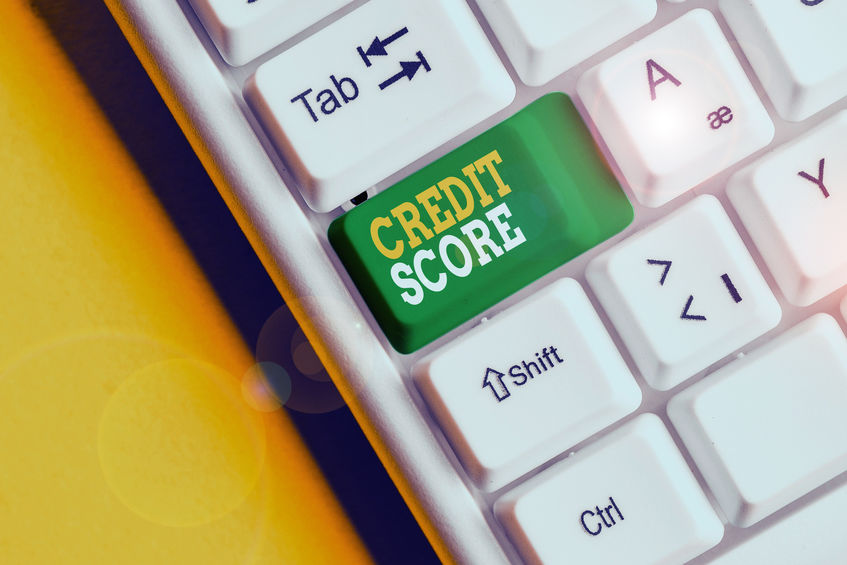 Buying a home is arguably the largest investment most Americans make over the course of their lives. That’s why most people need to take out a mortgage to realize their dream of becoming a homeowner.
Buying a home is arguably the largest investment most Americans make over the course of their lives. That’s why most people need to take out a mortgage to realize their dream of becoming a homeowner.
Lenders only want to give out a mortgage to people that will be able to pay it back. Hence, they examine five key financial factors to come to a decision. These factors include:
- Credit score
- Debt-to-income ratio
- Down payment
- Work history
- The value and condition of the home.
In this article, we’ll focus on how credit score affects your ability to get a mortgage.
First Things First – Lenders are Different
Note that different lenders set different requirements for giving out mortgages. Hence, no single credit score can guarantee a mortgage. But as a general rule, the higher your credit score, the better your chance of securing a mortgage with favorable terms. But why is this? A higher credit score means that you’ve handled your debt well in the past and this means you’re unlikely to default on your mortgage. Since you’re considered low risk, it’s easier to get a low-interest mortgage. The converse is also true.
And also, because lenders look at different factors, each lender has a wide range of acceptable credit scores. In the following subsections, we’ll look at credit score minimums by loan types.
Credit Score Minimums by Loan Types
For our analysis, we’re making use of the FICO score, which ranges from 300 to 850.
- Conventional Mortgage Loan – 620
If you’re seeking a conventional mortgage loan, you need a minimum score of 620. However, a higher score is desirable. According to a study by Ellie Mae, the average credit score for homebuyers using conventional loan was 756 for six months (Jan to June 2020).
Aside from getting a low-interest mortgage, a high score also enables you to pay lower in private mortgage insurance or PMI (This applies to those that pay less than 20% in down payments). For instance, with a credit score of 760, you pay just 0.3% in PMI. But with a credit score of 620, you can pay up to 1.1%.
- FHA loans – 500
A Federal Housing Administration (FHA) loan is a mortgage that is insured by the Federal Housing Administration and issued by an approved lender. FHA loans are designed for low-to-moderate-income borrowers; hence, they require lower credit scores and down payment compared to conventional loans.
To qualify for an FHA loan, you need a credit score in the 500s. With an FHA loan, you can pay as low as 3.5% as a down payment. However, to qualify for this, you need a credit score of at least 580. With a lower credit score, you’ll need to make a down payment of 10%.
According to a study by Ellie Mae over the same period, the average FICO score for home buyers with FHA loans was 680. So again, you observe the same trend: the higher your credit score, the better.
- VA loans – 640
A VA loan is a mortgage available through a program established by the US Department of Veterans Affairs. This loan is available to active and veteran service personnel and their families. Though it is backed by the federal government, it is issued through private lenders.
The good thing about VA loans is there is no government-set minimum score requirement. Other terms of VA loans are also generous: no mortgage insurance, no down payment, no-prepayment penalties, and a limited closing cost.
However, do not get carried away, as VA lenders have the discretion to set their requirements (particularly credit score). According to the same data by Ellie Mae, VA homebuyer’s average credit score ranged from 711 to 721.
- USDA Loan – 640
USDA loans are low-interest mortgages with zero down payments designed for low-income Americans that cannot qualify for conventional mortgages – particularly due to not good enough credit scores.
These home loans are made available by the U.S. Department of Agriculture, and like VA loans, there are no government-set minimum requirements. But this minimum score of 640 is what you’ll need to be eligible for automatic approval through the USDA’s automated underwriting system.
- Jumbo Loans – 700
A jumbo loan is a mortgage used to finance properties that are too expensive for a conventional conforming loan (which has a maximum amount of $548,250 in most counties).
Due to the high amount involved, most lenders would want to see a credit score of at least 700. Similarly, other aspects of your financial health will also be examined to ensure you’ll be able to make the required monthly payments.
What if Your Credit Score is too Low?
If your credit score is too low, finding a low-interest mortgage will be extremely difficult. However, having a co-signer who has a great credit score could help you secure a favorable loan.
Another option is to build your credit score before taking out a mortgage. You can build your credit by paying bills on time, maintaining a low credit balance, increasing your credit mix, and more. This is usually a slow process, and it requires patience. But building solid credit before taking out a mortgage is worth the wait as a low-interest mortgage will help save money in the long run.
Contact us today for more information.

